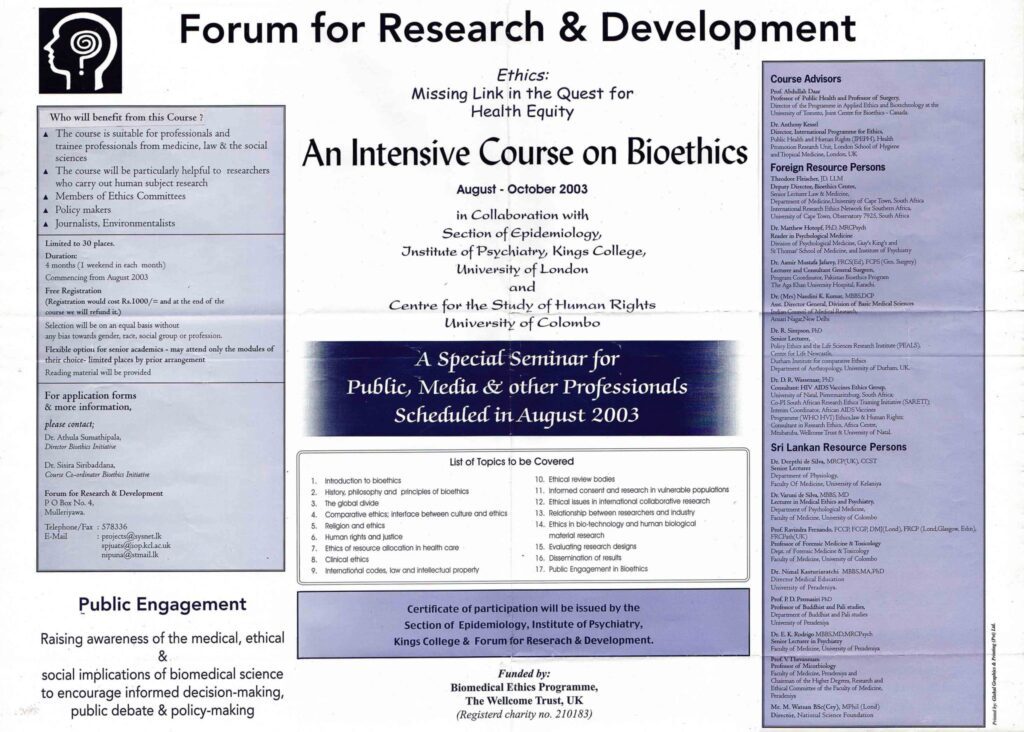In 2003 the Wellcome Trust bioethics Programme funded us to carryout an intensive course in Bioethics in Sri Lanka.
The first intensive bioethics course was held over 3-weekends (7 days) within 3 months; 14th-15th August, 13th-14th of September and 24th-26th of October 2003. It was organized in collaboration with the WHO non-communicable disease initiative and human genetics programme, Kings College, University of London and Centre for the study of human Rights, University of Colombo. The course was very popular, attracting competitive applications from 150 people for 30 vacancies. Therefore, upon completion, this bioethics course reached 50 professionals from 6 Universities and other academic institutions.
The inauguration of the initiative was held as a public seminar in keeping with our aim of public engagement and dialogue. The programme was evaluated and endorsed by WHO Human Genetics Programme of the NCD section and a representative from the WHO participated for the inauguration.
Thorough this initiative we consolidated our collaborative links with;
South African Research Ethics Training Initiative (SARETI)
International Research Ethics Network for Southern Africa (IRENSA)
International Programme for Ethics, Public Health and Human Rights (IPEPH)
Pakistan Bioethics Training Initiative
Joint Centre for Bioethics in Canada
Policy Ethics and Life Science Research Institute (PEALS) Centre for Life Newcastle
Durham Institute of Comparative Ethics, Department of Anthropology, University of Durham
Centre for the Study of Human Rights, University of Colombo
The World Health Organization
Co-PI South African Research Ethics Training Initiative (SARETI),
University of Natal,
South Africa
Deputy Director, Bioethics Centre,
International Research Ethics Network for Southern Africa,
University of Cape Town
Senior Lecturer,
Policy Ethics and Life Science Research Institute (PEALS) Centre for Life Newcastle,
Durham Institute of Comparative Ethics Department of Anthropology,
University of Durham
Initially 30 participants were expect, however, 135 academics across various disciplines applied. They were an impressive group from diverse background, comprised of medical and non-medical academics, lawyers, journalists, nurses, and ethics committee members.
As a result of this unexpected demand, the number of places were increased from 30 to 50 participants.
The composition was as follows:
Attendance was very satisfactory as 42 of the 50 participants (94%) had good attendance and only 5 (6%) dropped out. 3 people attended only 14% of the training and dropped out after and 3 of them were from Media. This suggested to us that they need a separate course from others.
